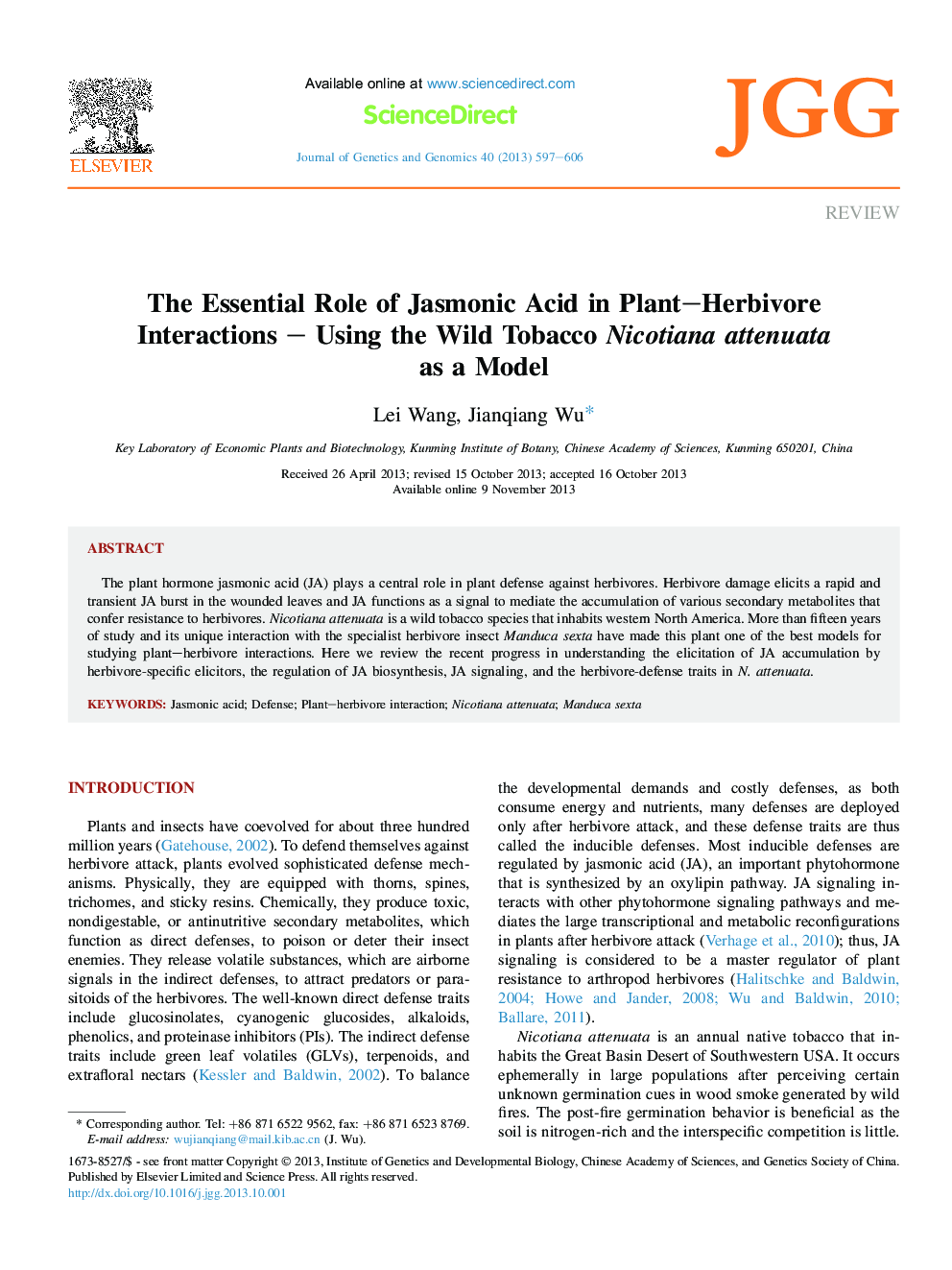| Article ID | Journal | Published Year | Pages | File Type |
|---|---|---|---|---|
| 2787372 | Journal of Genetics and Genomics | 2013 | 10 Pages |
The plant hormone jasmonic acid (JA) plays a central role in plant defense against herbivores. Herbivore damage elicits a rapid and transient JA burst in the wounded leaves and JA functions as a signal to mediate the accumulation of various secondary metabolites that confer resistance to herbivores. Nicotiana attenuata is a wild tobacco species that inhabits western North America. More than fifteen years of study and its unique interaction with the specialist herbivore insect Manduca sexta have made this plant one of the best models for studying plant–herbivore interactions. Here we review the recent progress in understanding the elicitation of JA accumulation by herbivore-specific elicitors, the regulation of JA biosynthesis, JA signaling, and the herbivore-defense traits in N. attenuata.
